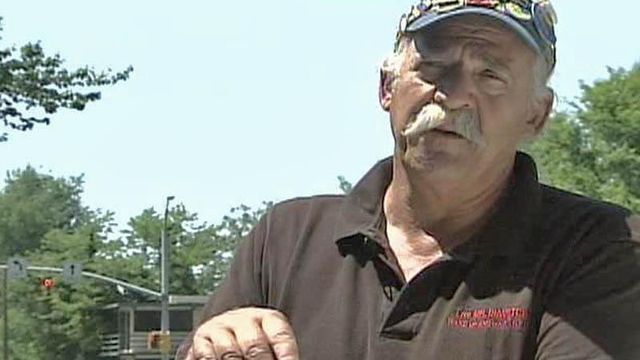'Mr. Diabetes' Spreads Information About Disease
Diabetes affects 22 million Americans, and many more are unaware they have it. So, one man is on a cross-country crusade to raise awareness about the dangers of the fifth-leading cause of death in the U.S.
Posted — UpdatedAndy Mandell, who often is mistaken for wrestler Hulk Hogan because of his physical size, long gray hair and moustache, calls himself Mr. Diabetes. He and his Defeat Diabetes Foundation support team left Mandell's home state of Florida in January 2002 and have traveled more than 8,000 miles in 30 states since then, receiving numerous city proclamations and talking publicly about diabetes.
"There's no vacation from diabetes. It's 24/7, and it's a life sentence," said Mandell, who was diagnosed with the disease in 1985 at age 40.
Ninety-five percent of diabetes cases are Type 2, or adult-onset diabetes. The disease is a major risk factor for other health problems, such as cardiovascular disease, kidney disease and many cancers.
Mandell stresses that diabetes is preventable, but it catches most people by surprise.
"People don't know what the risk factors are and the early warning signs," he said, noting that he had a family history of diabetes but ignored risk factors like a sedentary lifestyle and excess weight.
Some key warning signs are frequent urination, excessive thirst, fatique, numbness in the hands and feet and slow healing cuts or bruises. Many people have the symptoms several years before they're diagnosed.
"That's how insidious diabetes is," he said.
One of the complications of diabetes is neuropathy, where the smallest blood vessels in the hands and feet tend to break down. Mandell walks with a walking pole because of the numbness in his legs.
He's also had surgery to correct impaired vision due to retinopathy.
Exercise, a diet rich in fruits and vegetables and good medical care keeps Mandell healthy and moving toward his 10,300-mile goal. He's said he walks for awareness and isn't raising money for a cure.
"There is no cure. Forget about it. It ain't happening," he said. "We have to take responsibility for our own lives, and we can prevent this on our own. We can profile who's at risk for developing it, and we can change the outcome."
• Credits
Copyright 2024 by Capitol Broadcasting Company. All rights reserved. This material may not be published, broadcast, rewritten or redistributed.





